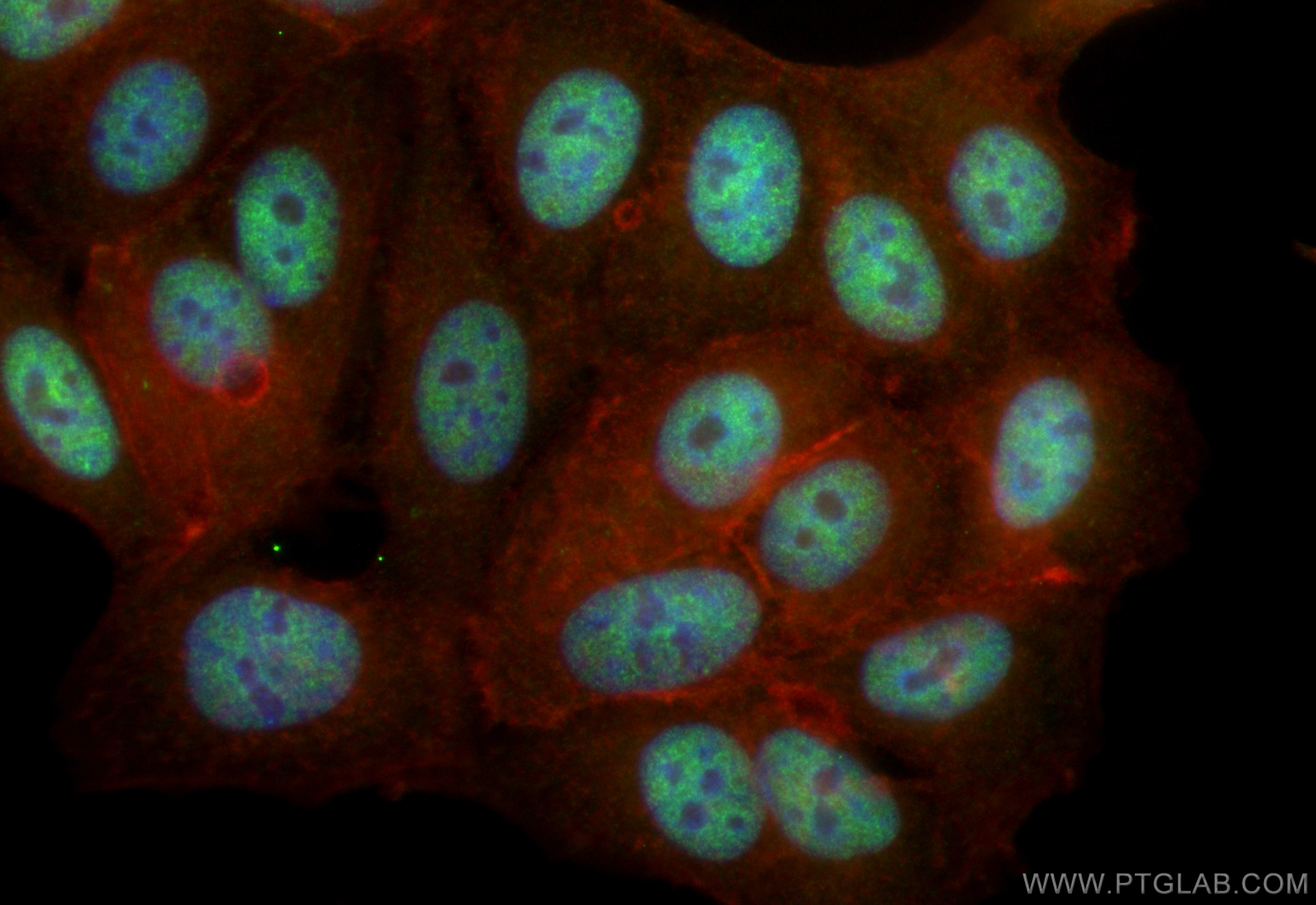Tested Applications
| Positive IF/ICC detected in | MCF-7 cells |
Recommended dilution
| Application | Dilution |
|---|---|
| Immunofluorescence (IF)/ICC | IF/ICC : 1:50-1:500 |
| It is recommended that this reagent should be titrated in each testing system to obtain optimal results. | |
| Sample-dependent, Check data in validation data gallery. | |
Product Information
CL488-84656-4 targets RXRB in IF/ICC applications and shows reactivity with human samples.
| Tested Reactivity | human |
| Host / Isotype | Rabbit / IgG |
| Class | Recombinant |
| Type | Antibody |
| Immunogen |
CatNo: Ag0263 Product name: Recombinant human RXRB protein Source: e coli.-derived, PGEX-4T Tag: GST Domain: 70-238 aa of BC001167 Sequence: RDGMGDSGRDSRSPDSSSPNPLPQGVPPPSPPGPPLPPSTAPSLGGSGAPPPPPMPPPPLGSPFPVISSSMGSPGLPPPAPPGFSGPVSSPQINSTVSLPGGGSGPPEDVKPPVLGVRGLHCPPPPGGPGAGKRLCAICGDRSSGKHYGVYSCEGCKGFFKRTIRKDLT Predict reactive species |
| Full Name | retinoid X receptor, beta |
| Calculated Molecular Weight | 57 kDa |
| GenBank Accession Number | BC001167 |
| Gene Symbol | RXRB |
| Gene ID (NCBI) | 6257 |
| Conjugate | CoraLite® Plus 488 Fluorescent Dye |
| Excitation/Emission Maxima Wavelengths | 493 nm / 522 nm |
| Form | Liquid |
| Purification Method | Protein A purification |
| UNIPROT ID | P28702 |
| Storage Buffer | PBS with 50% glycerol, 0.05% Proclin300, 0.5% BSA, pH 7.3. |
| Storage Conditions | Store at -20°C. Avoid exposure to light. Stable for one year after shipment. Aliquoting is unnecessary for -20oC storage. |
Background Information
Retinoid X Receptor beta (RXRB) is a member of the retinoid X receptor (RXR) family of nuclear receptors which are involved in mediating the effects of retinoic acid. RXRB heterodimerizes with other nuclear hormone receptors, such as RAR, the thyroid hormone receptor, and the vitamin D3 receptor, to enhance binding to their cognate response elements. (PMID: 8257090)
Protocols
| Product Specific Protocols | |
|---|---|
| IF protocol for CL Plus 488 RXRB antibody CL488-84656-4 | Download protocol |
| Standard Protocols | |
|---|---|
| Click here to view our Standard Protocols |




